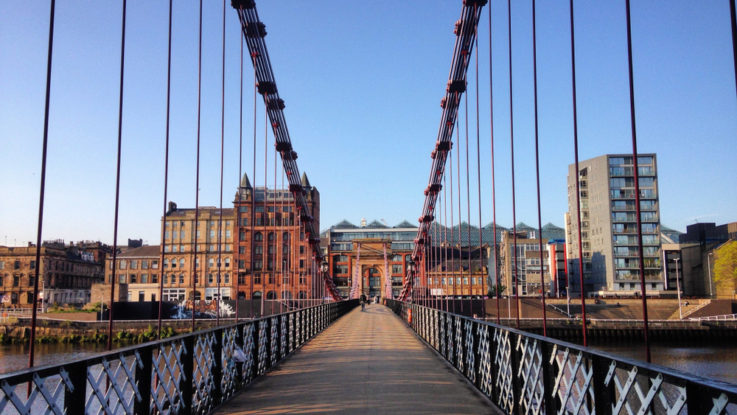
Young Women Lead in Glasgow, Scotland recently published its report, Glasgow: A Feminist City?, based on their research into the city’s public transport and spaces. Young Women Lead is working with the concept of feminist town planning – also called feminist urbanism – which centers around the idea that towns, cities, and urban spaces are generally designed by men, for men, with a lack of consideration for the needs of women, non-binary, and genderfluid people.
Elena Soper, the program’s coordinator, said: “Feminist town planning is essentially thinking about how the infrastructures of cities weren’t built with women in mind and everything we see around has been built not with a ‘neutral’ person in mind but a cis, white, heterosexual man so we looked at how to consider bus and park planning for everyone. We are thinking about lighting, public transport and how public transport links together and our open spaces and how we use them. We are also thinking a lot about safety. There’s been a massive discussion recently on are women ever actually safe so we are thinking about what can be done to make our streets safe for women.”
The report was written by a group of 23 women – aged between 16 and 30 – from across Glasgow. The data was collected from around 600 survey respondents. The findings showed that around 67% of women and non-binary people often feel unsafe or uncomfortable on buses in Glasgow. 66% of respondents felt their social identity impacted their safety. Regarding parks, only one in five of the participants who commented felt very comfortable in their chosen park, with the majority saying they only felt safe when visiting during daylight hours. Participants also pointed out that parks are used as thoroughfares and shortcuts for taking a route from A to B and represent a crucial, but possibly overlooked, part of the transport network.
The report advocates increasing lighting at bus stops and in parks and cutting back overgrown shrubbery which could give attackers a place to hide. One simple ticket for all modes of public transport was suggested to remove any barriers to getting ‘from A to B’ in the safest, cheapest way possible. Increasing seating and sheltered areas within parks, frequent night-time buses including a women-only bus, and increased security at night in the form of park rangers was also recommended.
Ms Soper said: “What we really want is for it to be taken very seriously because this is a piece of research that has been done by the women of Glasgow for the women of Glasgow. The council has a responsibility to listen to the people who live there. There are ongoing initiatives looking at transport and parks and I think they need to include this. The recommendations are not totally wild and out there. This is constructive criticism for things which can be improved.”